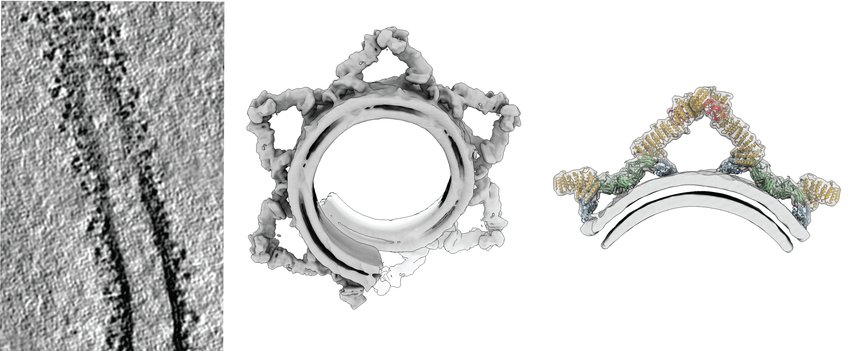
Molecular Mechanisms of Membrane Trafficking
The organised flow of materials packed in transport vesicles and tubules is a key underlying mechanism of the cellular organisation. This process, referred to as Membrane Trafficking, sorts and redirects to their target destination a multitude of molecular cargoes with astonishing precision and efficiency. Environment sensing, intracellular signalling, biomolecules synthesis and degradation all depend on membrane trafficking.
On a molecular level, a transport event starts with cargo recognition and within a specific membrane and concentration followed by separation of the resulting cargo-enriched membrane domain from the donor organelle by the mechanical extrusion into a transport structure. A dedicated class of molecular machines called 'coats' executes these critical steps of membrane trafficking.
Our research focuses on coats that drive cargo redirections in the transport hub of the cell, named endosomes. Mutations in endosomal coats are linked to numerous pathologies in humans with a prominent cluster of neurological defects, including Alzheimer’s and Parkinson’s diseases. Structural studies of reconstituted and endogenous coats using cryo-ET and subtomogram averaging are our prime research approach complemented by single-particle cryo-EM and X-ray crystallography, biophysical and biochemical analysis, functional assays in cell cultures and mass-spectrometry.
With that, we aim to understand the mechanistic bases of endosomal sorting, explain the effects of disease-causing mutations and inform the development of novel therapeutics.